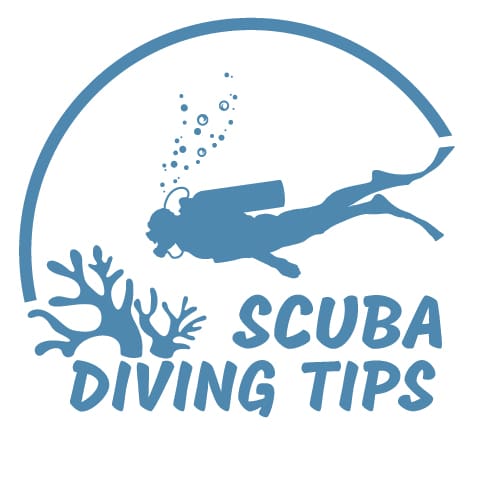Frequently Asked Questions About Scuba Diving
1. What does “scuba” in scuba diving stand for?
“Scuba” stands for Self-Contained Underwater Breathing Apparatus. This term refers to the equipment that allows divers to breathe underwater independently, using tanks filled with compressed air and a regulator to control airflow.
2. How do I get certified to scuba dive?
To become a certified scuba diver, you must complete a course offered by recognized organizations like PADI or SSI. The certification process includes theoretical lessons, confined water dives, and open water dives to ensure you understand safety procedures and can handle the equipment effectively.
3. Is scuba diving safe?
Scuba diving is safe when proper training, equipment, and safety protocols are followed. Risks are minimized by adhering to guidelines taught during certification courses, such as monitoring air supply, ascending slowly, and diving within your limits.
4. Do I need to be a strong swimmer to scuba dive?
While you don’t need to be an Olympic swimmer, basic swimming skills are essential for scuba diving. Comfort in the water and the ability to swim short distances are important for safety and confidence underwater.
5. At what age can you start scuba diving?
Most certification agencies allow individuals to start scuba diving at the age of 10. However, junior certifications come with depth and supervision restrictions until the diver reaches a certain age and experience level.
6. How deep can I dive with an Open Water certification?
With an Open Water Diver certification, you can dive up to 18 meters (60 feet). To dive deeper, you would need to pursue advanced certifications that provide training for greater depths.
7. What is decompression sickness, and how can it be avoided?
Decompression sickness, also known as “the bends,” occurs when nitrogen bubbles form in the bloodstream due to rapid ascent. It can be avoided by ascending slowly, performing safety stops, and following dive tables or computer guidelines.
8. What equipment do I need for scuba diving?
Essential scuba diving equipment includes a mask, fins, snorkel, buoyancy control device (BCD), regulator, dive computer, and wetsuit. Some divers also use accessories like underwater cameras or dive lights.
9. Should I buy or rent scuba diving gear?
For beginners, renting gear is a cost-effective option. As you gain experience and dive more frequently, investing in personal equipment ensures better fit and comfort. Prioritize purchasing items like masks and fins first.
10. Can I scuba dive if I wear glasses or contact lenses?
Yes, divers who wear glasses can use prescription masks, and those with contact lenses can dive safely. It’s important to consult with a dive professional to find the best solution for your vision needs underwater.
11. How long does a typical scuba dive last?
The duration of a scuba dive depends on factors like depth, air consumption, and dive plan. On average, recreational dives last between 30 to 60 minutes.
12. Is it possible to scuba dive with asthma?
Scuba diving with asthma is possible but requires medical clearance. Divers must ensure their asthma is well-controlled and consult with a physician experienced in dive medicine before participating.
13. What marine life can I expect to see while scuba diving?
Scuba divers can encounter a diverse range of marine life, including coral reefs, tropical fish, sea turtles, sharks, and manta rays, depending on the dive location and conditions.
14. How do I equalize pressure in my ears during a dive?
To equalize ear pressure, divers use techniques like the Valsalva maneuver (pinching the nose and gently blowing) or swallowing. Equalizing early and often during descent helps prevent discomfort.
15. What is the difference between scuba diving and snorkeling?
Scuba diving involves using a tank and regulator to breathe underwater, allowing for deeper and longer dives. Snorkeling is limited to surface swimming with a mask and snorkel, offering a more accessible but less immersive experience.
16. How often should I service my scuba diving equipment?
Regular maintenance is crucial for safety. It’s recommended to have your scuba gear, especially regulators and BCDs, serviced annually or as per the manufacturer’s guidelines.
17. Can I fly after scuba diving?
Flying after diving can increase the risk of decompression sickness. It’s advised to wait at least 12 hours after a single dive and 18 hours after multiple dives before flying.
18. What is a safety stop, and why is it important?
A safety stop is a pause at about 5 meters (15 feet) for 3 minutes during ascent. It allows excess nitrogen to dissipate from the body, reducing the risk of decompression sickness.
19. Do scuba certifications expire?
Most scuba certifications do not expire. However, if you haven’t dived in a while, it’s recommended to take a refresher course to update your skills and knowledge.
20. How can I improve my buoyancy control?
Improving buoyancy involves practicing breathing techniques, weight distribution, and equipment familiarity. Taking a Peak Performance Buoyancy course can provide targeted training to enhance control underwater.
